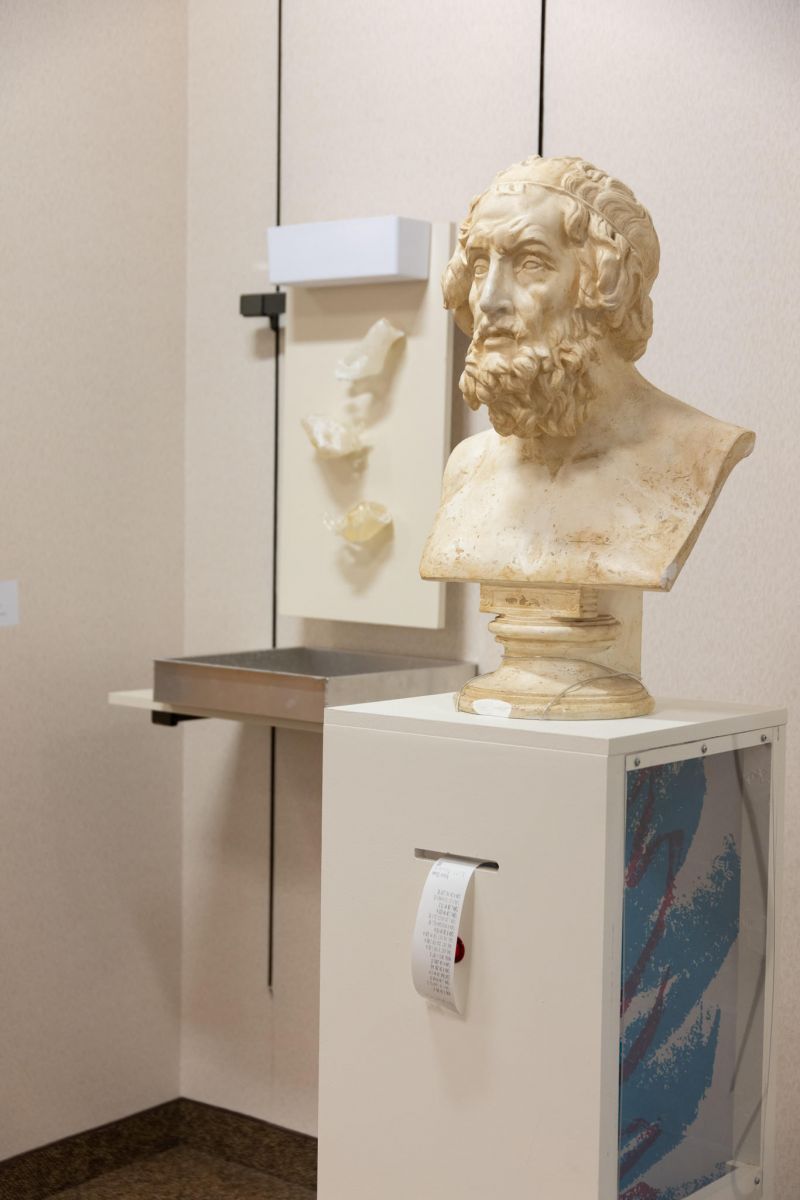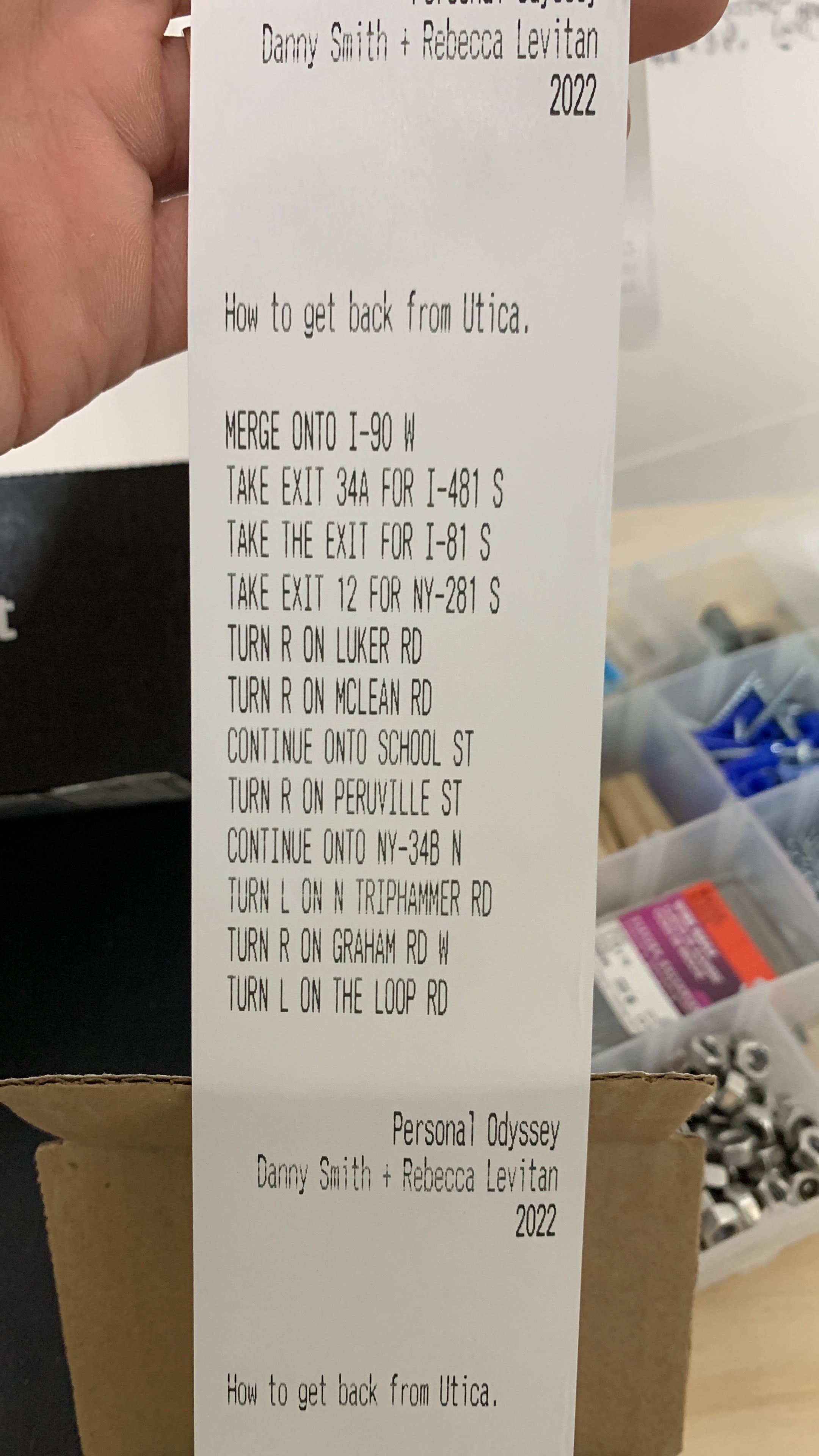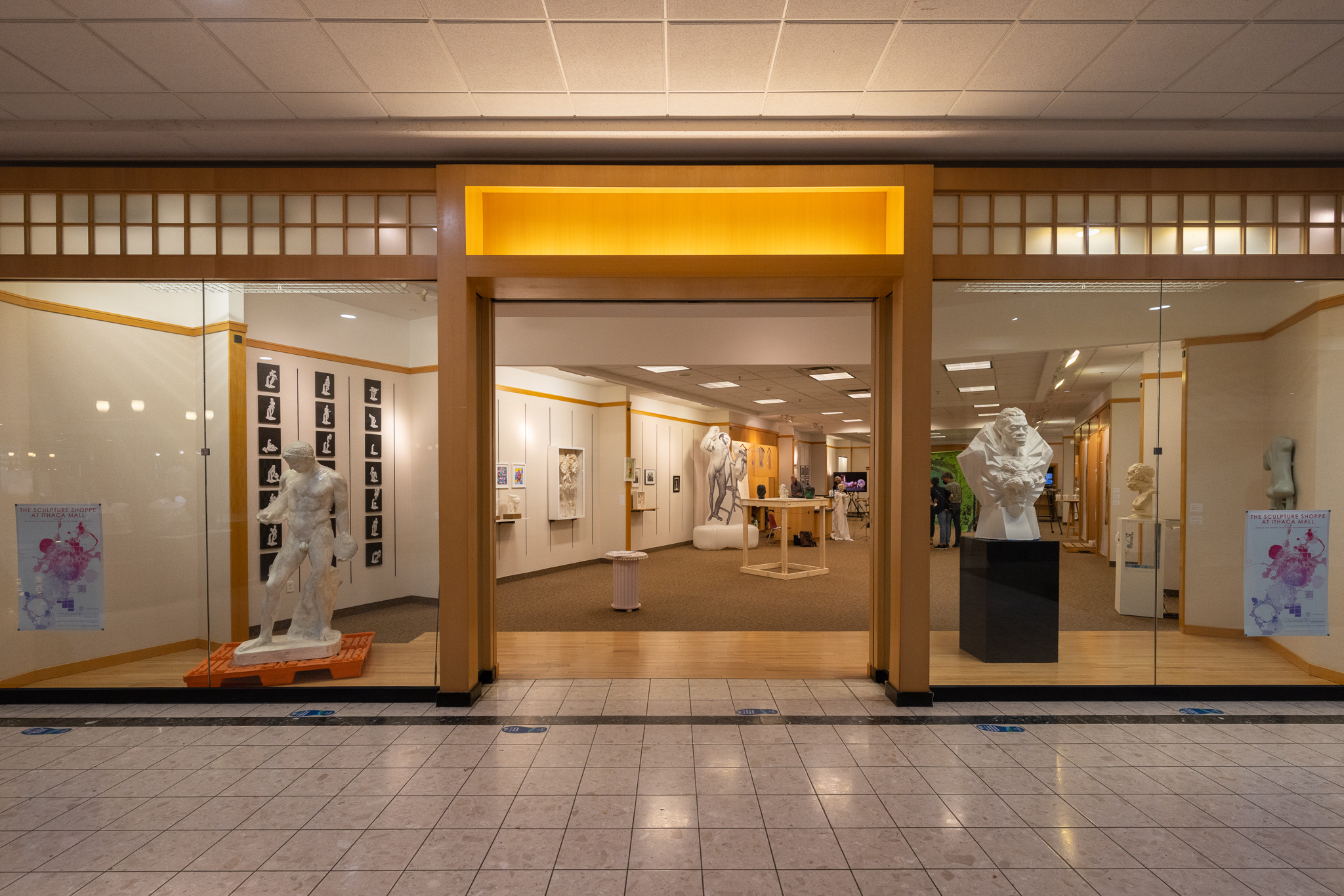Personal Odyssey


Directions from Utica, NY to The Sculpture Shoppe
Personal Odyssey, is an ‘Odyssey generator,’ an interactive sculptural installation that mobilizes the concepts of the classical and of nostalgia – as derived from the ancient idea of νόστος (a homecoming journey). At its core is a bust of Homer, a c.1890 plaster copy of “the Blind Type” discovered in Rome in 1705 and held in the permanent collection of the Musée du Louvre. The cast replicates a 1st-century CE Roman copy of a 2nd-century BCE Hellenistic original. The cast sits on a customized plinth concealing a thermal receipt printer.
At the push of a button the sculpture’s plinth, viewers can print a random set of directions from a classically named location across New York State back to The Sculpture Shoppe in Ithaca, housed in a former retail space in the dying Shops at Ithaca mall. The mechanism itself harkens back to the tradition of fortune-telling automata, popular on boardwalks, arcades, and malls. Its product, the printed receipt, is the coin of the realm of the shopping mall: proof of purchase and – like a plaster cast – a token that stands in for a distant original.
The work also, as curator Verity Platt wrote, “draws attention to the systematic renaming of Iroquois lands in Western New York with toponyms drawn from classical antiquity. Like the plaster casts at Cornell, these forms of classical imitation asserted western ideals on stolen territory. In the context of the dying shopping mall, they are now put into dialogue with another cycle of ruination — the lost utopia of American consumerism.”
At the push of a button the sculpture’s plinth, viewers can print a random set of directions from a classically named location across New York State back to The Sculpture Shoppe in Ithaca, housed in a former retail space in the dying Shops at Ithaca mall. The mechanism itself harkens back to the tradition of fortune-telling automata, popular on boardwalks, arcades, and malls. Its product, the printed receipt, is the coin of the realm of the shopping mall: proof of purchase and – like a plaster cast – a token that stands in for a distant original.
The work also, as curator Verity Platt wrote, “draws attention to the systematic renaming of Iroquois lands in Western New York with toponyms drawn from classical antiquity. Like the plaster casts at Cornell, these forms of classical imitation asserted western ideals on stolen territory. In the context of the dying shopping mall, they are now put into dialogue with another cycle of ruination — the lost utopia of American consumerism.”
Plaster cast, receipt printer, arduino, plexiglas, MDF.
Produced with Rebecca Levitan.
The Sculpture Shoppe
Cornell University
5-30 May 2022
On permanent display in the Department of Classics, Cornell University.
Produced with Rebecca Levitan.
The Sculpture Shoppe
Cornell University
5-30 May 2022
On permanent display in the Department of Classics, Cornell University.

